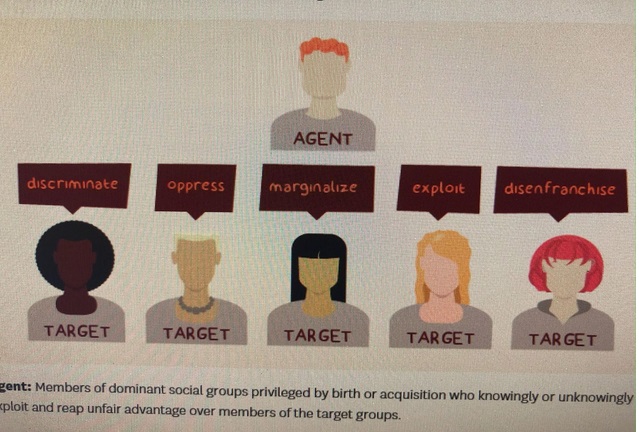
University didn’t produce data to back claim racism is a ‘public health crisis’: doctor
A former Duke University Health System emergency medicine physician is speaking out after he says he was terminated for questioning statements about systemic racism in his employer’s pledge.
Dr. Kendall Conger (pictured) had been with the Raleigh, North Carolina medical provider for 12 years before he lost his job this summer. He also was an adjunct associate in the Department of Family Medicine and Community Health at the Duke University School of Medicine.
The physician said he opposes racism and believes people should be treated with respect, but the pledge went too far by claiming racism is a “public health crisis.”
In a recent phone interview with The College Fix, Conger said he felt frustration with the lack of clinical data backing the pledge.
“They’ll say ‘racism is a public health crisis,’ but I’ve never seen them say, ‘We’re guided by science,’” he told The Fix.
Duke Health published the pledge in 2021, part of a wave of corporations and academic institutions doing so in the wake of the George Floyd riots in the summer of 2020.
It states: “In the Duke Health family, we believe that racism is a public health crisis and that our communities have no place for hatred. We believe that delivering exceptional care, groundbreaking research, and top-notch education requires us to identify forms of racism and hate and to join forces against them.”
The pledge also says the system stands “against racism, bias, and hate.”
Conger said he voiced his concerns to his immediate superiors but did not receive data to back the pledge’s assertions.
Then, Conger went higher up. In a meeting with the president of Duke Health Raleigh, he said he presented his objections about the lack of clinical data backing the pledge’s claims, but he still received no answers.
“I became more vocal, started copying more and more people on my emails, and they got tired of it,” Conger said.
In January, he received a letter notifying him that his employment contract would not be renewed as of June 30.
“We believe your behavior is negatively impacting the emergency physician team, which could jeopardize the care of patients. Given this, we are choosing not to renew your contract for employment,” the letter states.
Duke Health’s media office did not respond to two requests for comment via email, asking about the circumstances of Conger’s termination and its pledge against racism.
Conger, when asked about the impact of diversity, equity, and inclusion pledges on the integrity of the medical practice, told The Fix about a decrease in the caliber of incoming medical students and graduating doctors. He said this could negatively impact future healthcare outcomes.
“You might be the best student of your race, but not necessarily the best medical student,” Conger said. “DEI acts like a quota system.”
Conger told The Fix he also finds fault with the distinction in Duke’s policy between equality of healthcare and “equity,” or what he terms as a “guaranteed outcome.” Often, this can mean selecting students and job candidates based on demographics such as race or sex, rather than merit.
“I think equity will run afoul of the [Equal Employment Opportunity Commission], this idea of equal outcomes,” he said.
Color Us United, a group dedicated to a race-blind society, recently launched a petition criticizing the university and its related health system for “unethical, dangerous, and potentially illegal practices in hiring and training.”
“Judging applicants, employees, or patients according to things like skin color is shockingly inappropriate and completely unacceptable,” the petition states. “The primary function of any doctor or employer of doctors is to take care of patients, not promote political activism or racial ideology.”
Mike Markham, program coordinator for Color Us United, told The Fix he believes the medical community should put the emphasis back on the quality of care instead of racism.
“For the benefits of its patients, employees, and its standing in the community, Duke must return to placing merit and ethics above all else,” Markham said in a recent email.

IMAGE: Color Us United
In a column at the James G. Martin Center for Academic Revival, Markham shared a graphic that Conger and others were shown during a Duke Health event that suggests white men are “agents of oppression and exploitation.”
The graphic (pictured) refers to an “agent” as someone who is a “member of social groups privileged by birth or acquisition.” The “agent” in the graphic is white and male.
“Again, no scientific or clinical data was offered to justify or explain why a major healthcare provider espoused such darkly generalized views of individuals,” Markham wrote.
In his farewell letter, published at the American Thinker, Conger wrote: “Duke is leading us away from the successful melting pot. … Americans don’t want equity, we want equality. We don’t want social justice, we want justice.”
Addressing his queries for scientific data backing the anti-racism pledge, Conger wrote, “Duke refused to answer because equity is wholly on their belief in the unconscious racism of white people – a pretentious, dubious, insulting, and risible pretense for wealth redistribution.”
He questioned whether the university and its health system are really “dedicated to the American proposition that all men are created equal,” or if they have embraced instead “the socialist proposition that all groups should be made equal.”
Around the same time as the pledge came out, Duke Medical School also released a “Dismantling Racism and Advancing Equity, Diversity, and Inclusion” guide. The document equates being on time and maintaining a dress code with white supremacy, according to a recent article in the New York Post.
“In the workplace, white supremacy culture explicitly and implicitly privileges whiteness and discriminates against non-Western and non-white professionalism standards related to dress code, speech, work style, and timeliness,” the guide states.
MORE: NIH spends $136 million in taxpayer funds on racism and medicine studies
IMAGE: Duke Health/Facebook, Kendall Conger/James G. Martin Center for Academic Revival
Like The College Fix on Facebook / Follow us on Twitter






Please join the conversation about our stories on Facebook, Twitter, Instagram, Reddit, MeWe, Rumble, Gab, Minds and Gettr.